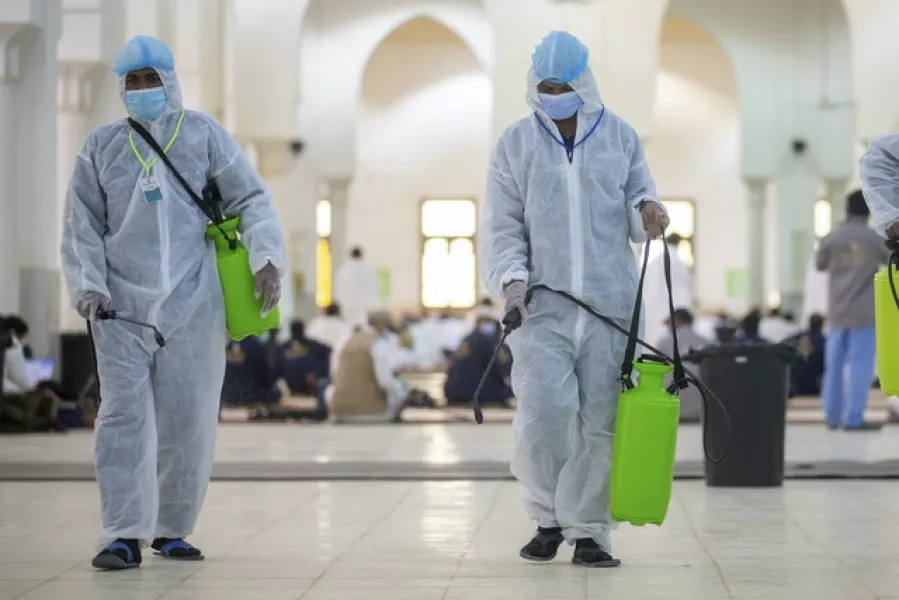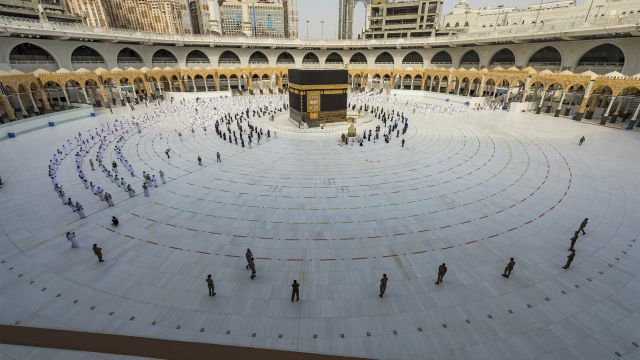The last days of the annual pilgrimage to Mecca in Saudi Arabia coincide with the four-day Eid al-Adha, or “Feast of Sacrifice”, in which Muslims slaughter livestock and distribute the meat to the poor.
Nearly every aspect of this year’s pilgrimage and celebrations has been hugely affected by the global coronavirus pandemic.

It has pushed millions of people around the world closer to the brink of poverty, making it harder for many to fulfil the religious tradition of purchasing livestock.
In Somalia, the price of meat has slightly increased. Abdishakur Dahir, a civil servant in Mogadishu, said that for the first time he will not be able to afford goat for Eid because of the impact of the virus on work.
In some parts of West Africa, the price for a ram has doubled. Livestock sellers, used to doing brisk business in the days before the holiday, say sales have dwindled and those who are buying cannot afford much.
The hajj pilgrimage has also been drastically affected by the virus. Last year, some 2.5 million pilgrims took part, but this year as few as 1,000 pilgrims already residing in Saudi Arabia were allowed to preform the hajj.

The Saudi Health Ministry said there have been no cases of the Covid-19 illness among this year’s pilgrims. The government took numerous precautions, including testing pilgrims for the virus, monitoring their movement with electronic wristbands and requiring them to quarantine before and after the hajj. Pilgrims were selected after applying through an online portal, and all had to be between 20 and 50 years of age.
Just after dawn on Friday, small groups of pilgrims – masked and physically distancing – made their way towards the massive multi-storey Jamarat Complex in the Saudi valley area of Mina. There, the pilgrims cast pebbles at three large columns. It is here where Muslims believe the devil tried to talk the Prophet Ibrahim, or Abraham, out of submitting to God’s will.
Muslims commemorate Ibrahim’s test of faith by slaughtering livestock and animals and distributing the meat to the poor.
During the last days of hajj, male pilgrims shave their heads and remove the white garments worn during the pilgrimage. Women cut off a small lock of hair in a sign of spiritual rebirth and renewal.
The hajj, both physically and spiritually demanding, intends to bring about greater humility and unity among Muslims. It is required of all Muslims to perform once in a lifetime.
Sheikh Abdullah al-Manea, member of the Supreme Council of Senior Scholars of Saudi Arabia, used the hajj sermon on Friday to praise the kingdom’s leadership for their “wise decision” to limit the number of pilgrims and protect human life.
“We thank the positive role of Muslims around the world that have complied with the regulations of the country to protect them from the spread of this virus, which leads to the protection of Mecca and Medina,” the sheikh said.







